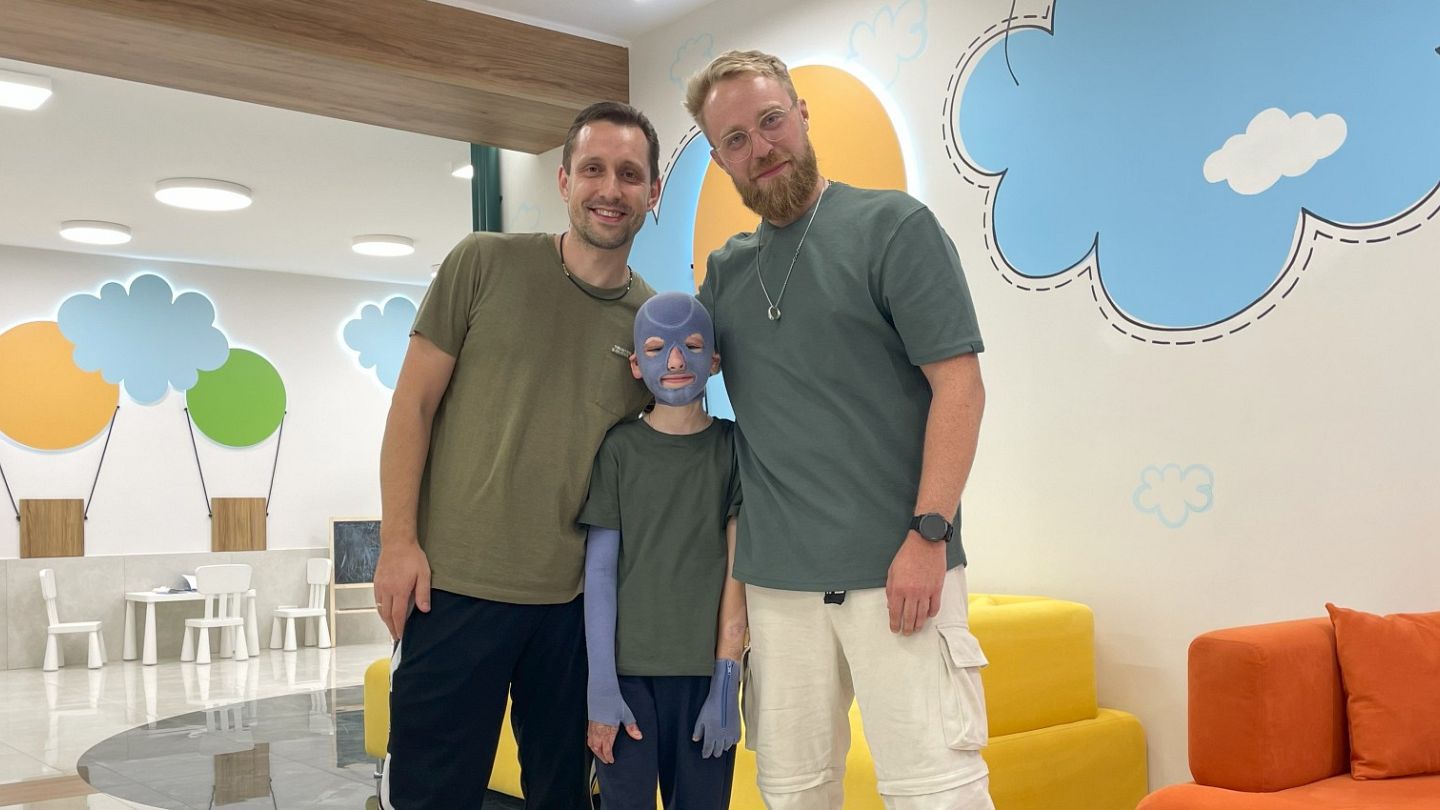How Ukraine's medevac programme helped save a boy severely burned in a missile strike
Coordinated by Ukraine's Ministry of Health with the support of the WHO and EU states, the programme has helped over 5,000 patients since its launch.
A Ukrainian boy severely injured by a Russian strike three years ago has managed to resume his childhood passions thanks to a homegrown programme dedicated to medical evacuations. Roman was 7 years old when the clinic in which he was sitting with his mother was hit during a missile attack in Vinnytsia, Ukraine, in July 2022. He managed to crawl out from under the debris, but the strike killed 26 people, including Roman’s mother. He had internal injuries, burns covered 45 per cent of his body, and he spent two weeks in a coma due to the severity of his injuries."When I woke up, I called out and a nurse came, but she spoke only in German and I couldn’t understand," he said in a statement published by the World Health Organization (WHO)."At first, I didn’t know where I was – I thought I was still in Ukraine. Then I saw that I was all wrapped in bandages, and I remembered the whole event and understood that I was abroad. I was so glad when my father arrived," he added.A medical evacuation programme to provide specialised careRoman was evacuated to receive specialised care that wasn’t available in Ukraine, having been transferred to the University Hospital of Dresden in Germany through Ukraine’s then-new specialised medevac programme."The Ministry of Health of Ukraine [which coordinated the programme] has established criteria which patients are assessed against for eligibility and also suitability to be considered for medical evacuation," a spokesperson of the WHO told Euronews Health by email."These criteria are mainly focused on specialised trauma care, cancer and rehabilitation supports that may not currently be accessible or available in Ukraine at the time," they added. Such a transfer presents several challenges for both the patients and the medical team. "Roman was in a precarious condition. He was so badly burned that he had to be sedated and ventilated to complete the journey from Vinnytsia to Lviv, then across the border to Rzeszów in Poland," said Jonathan Vinke, an advanced paramedic who was part of the medical team who evacuated him.The WHO explained that critically unwell children are a very "difficult group of patients to be medically evacuated as they require specialist transfer teams who are not only skilled and experienced in caring for paediatric patients in the first instance". The evacuation teams "must also have a good understanding of transfer medicine as paediatric patients are vulnerable to sudden deterioration".5,000 Ukrainian patients helpedCoordinated by the Ministry of Health of Ukraine with the support of the WHO, the EU and various states, the medevac programme has helped over 5,000 patients since its launch in EU partner countries and various WHO Member States."Each week, a small number of Ukrainian patients continue to be accepted by participating countries in the Medevac Programme, with Germany, Poland, Lithuania, the Netherlands and Spain being the most active," the WHO said.The programme is expected to continue throughout 2025 and into 2026 and also allows for rapid clearing out of hospital beds in case of a significant mass casualty event or attack, necessitating to disperse patients quickly, the WHO added. Today, Roman has returned to Ukraine, where he lives with his father.After extensive physical rehabilitation, Roman was able to resume his hobbies: ballroom dancing and accordion, despite the initial poor diagnosis given due to the severity of his injuries."Never give up. You never know what’s waiting for you. Sometimes you may think that the road is so long," he said. "You may get there sooner than you think, or you may need more time, so you have to keep doing what you are doing and not give up".


